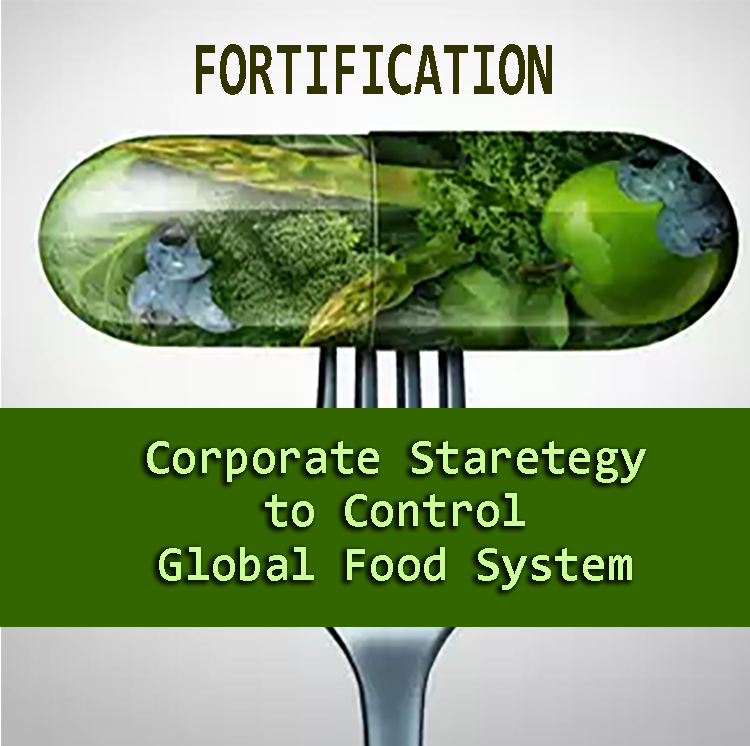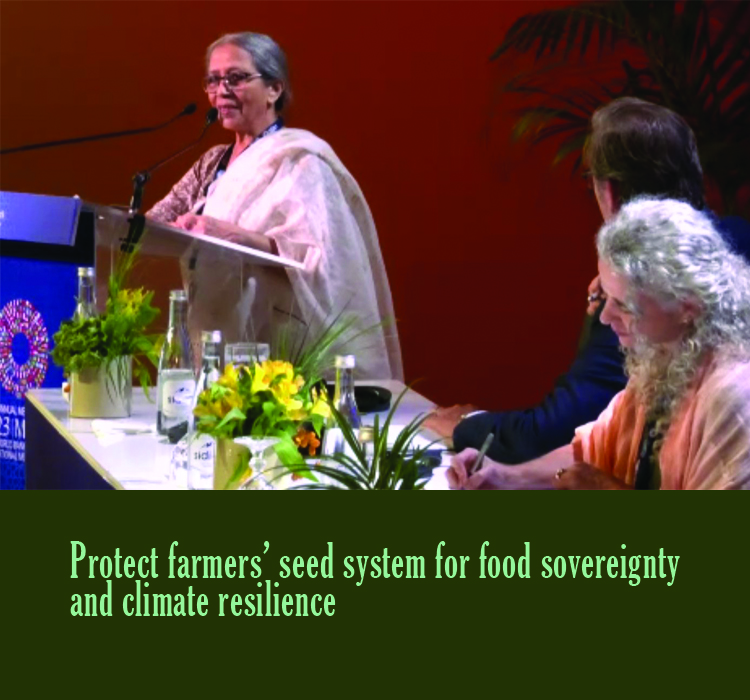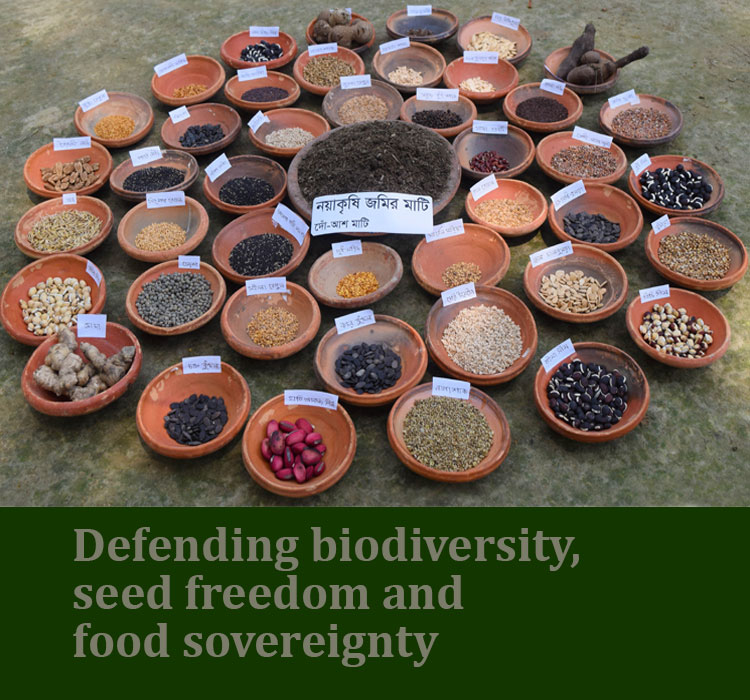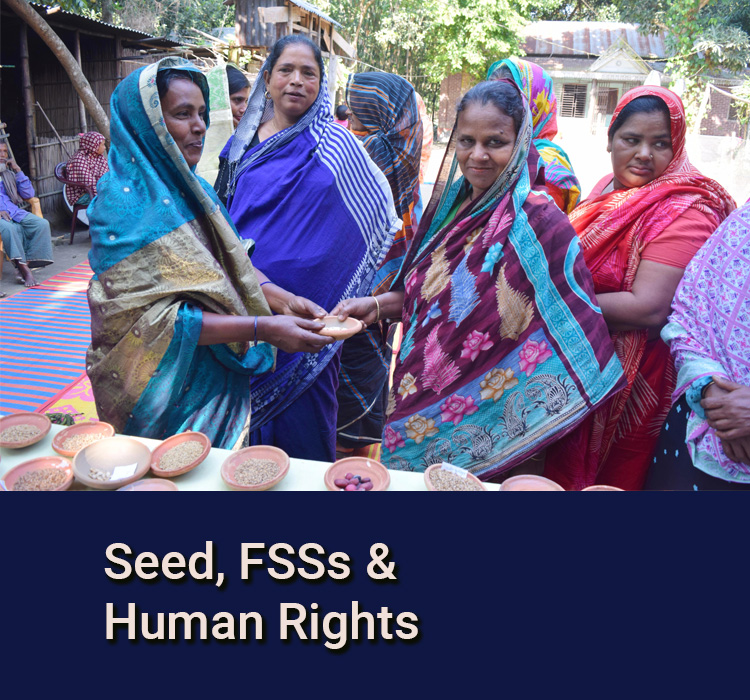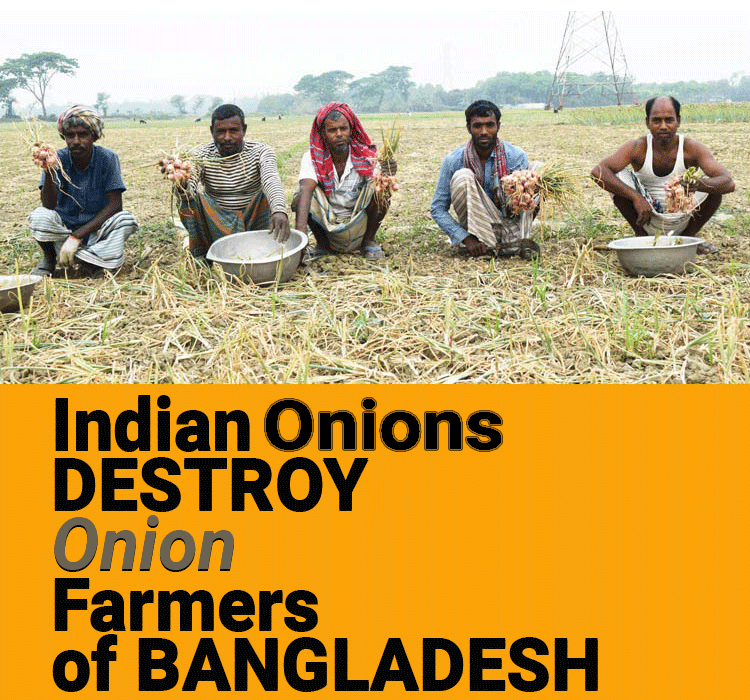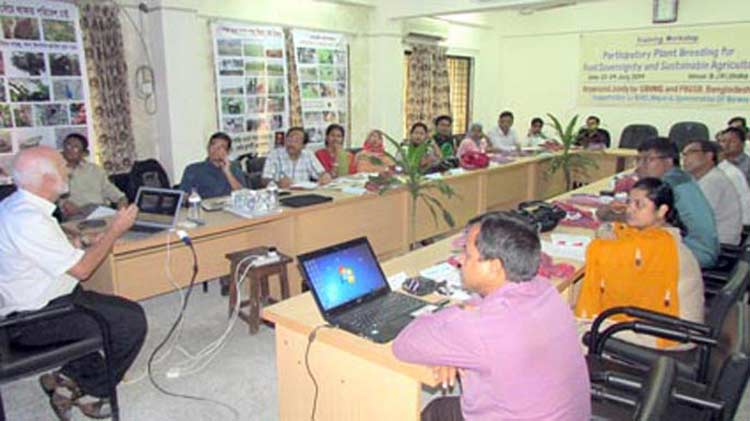Mandatory fortification is not a solution for malnutrition
The global actors in the food business are now busy finding or creating markets for industrial food products. Countries with a large population, where laws and regulatory authorities are absent or weak, are generally targets. Categories such as ‘nutrition’, ‘micro-nutrients, etc., play a role in constituting new corporate markets. These categories implicitly suggest that agriculture and the farming communities can not provide healthy foods and nutrients necessary for a healthy life, but could only be provided by high-tech industrially produced commodities. A major shift in our perception of food, agriculture, and nutritio (Read More)
Industrial Food system In light of Cop 28 and the ecological alternative
The UNFCCC COP28 conference, starting on November 30 in Dubai, UAE, has garnered little to no attention from the media in Bangladesh. Despite this lack of attention, the conference will bring together over 70,000 delegates from 197 countries, including Bangladesh, to address key issues such as climate financing, loss and damage fund, and food systems transformation. The conference aims to address the failure of previous efforts to reduce greenhouse gas emissions due to the industrialized nations' lack of commitment to reducing their share of emissions, particularly in the reduction of fossil fuel use. The conference is presided over by the (Read More)
Protect farmers’ seed system for food sovereignty and climate resilience
Farida Akhter presentation in the Panel on “ How Can the World Bank Build Long-term Resilience and Equity in the Global Food System?” 11 October, 2023
Today, I stand before you at this international conference to shed light on a critical issue that affects us all, from the smallest farming households to the entire global community. I will discuss the urgent need and appeal to the World Bank and relevant international institutions, to reevaluate the approach to agriculture, focusing on the pivotal role of Farmer's Seed Systems (FSSs) and ecological agriculture in ensuring not just food security/sovereignty, but the very (Read More)
Defending biodiversity, seed freedom and food sovereignty
On the occasion of International Environment Day, on June 5, Diverse Women for Diversity launched the Ecofeminist Manifesto, marking a significant event in the history of feminism. With the participation of over 150 women from all different continents, the 58-page ‘Ecofeminist Manifesto’ is titled “Making Peace with the Earth: Through Diversity, Mutuality, Non-Violence, and Care’. The document reflects the intensive sharing and interspacing of multiple horizons of knowledge practice and the concrete ground-level work of feminists and ecological practitioners. Conversations and sharing took place at Navdanya Biodiver (Read More)
On Farmers’ Seed Systems (FSSs)
The Farmers' Seed Systems (FSSs) are by far the most important source of seed in most countries and play a vital role in countries like Bangladesh. Therefore FSSs deserve close and critical attention by policy makers. There are misguided and ill-conceived efforts to replace the FSSs for a system in which seeds are treated as dead ‘inputs’ and farmers are compelled to buy seeds from commercial markets. Separation of seeds from their organic relation to farming and FSSs distorts the agroecological role of farming households. Such disarticulation results in treating biological wealth of a community as ‘common heritage&r (Read More)
Produce more onions and avoid onion imports?
It seems, to stabilise the price of onions in the retail market, we have to pray to God for the stable weather condition in India. But it is not only natural disasters, but also trade restrictions of the Indian government as well
Onion is not only a matter of commerce, it is about agricultural production linked to the economic survival of the small-scale farmers. Photo: UBINIG.
"Onion prices have shot up due to the heavy downpours in Bangalore, India. Traders of the neighbouring countries are also responsible for this" - this is what Commerce Secretary Tapan Kanti Ghosh said on 10 October 2021.
Like every year, during (Read More)
Organized Training Workshop on Participatory Plant Breeding
A training workshop on Participatory Plant Breeding (PPB) for food Sovereignty and sustainable Agriculture was jointly organized by UBINIG (Policy research for Development Alternative) and PBGSB (Plant Breeding and Genetics society of Bangladesh) at Bangladesh Jute research Institute (BJRI), Manik Mia Avenue, Dhaka during 22-24 July, 2014.
The training workshop was organized in relation to Community based Biodiversity Management (CBM) program which has been implemented in 4 countries in South Asia under CBM regional coordination unit by Local Initiatives for Biodiversity, Research and Development (LI-BIRD) from Nepal. In Bangladesh (Read More)
